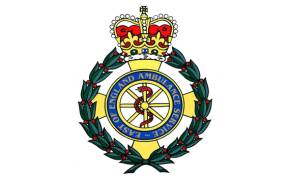
As we move into a new year I wanted to reflect on some of the main challenges facing us over the next few months; top of the list is continuing to make improvements to the services we deliver to patients; refining our strategy for the next three to five years, which will set out where we are going and what we need to do to get there; embedding our vision and values and changing our culture; implementing the new Cleric CAD in Chelmsford and Norwich EOC; and developing our operating model. A few to be getting on with!
We have already made good progress in all of these areas, but I recognise there is more we need to do. Our strategy is under development and we have held engagement events with staff, clinicians and managers to gather your feedback and weave this in. We are also holding a volunteer engagement forum on the 16th January to talk with the whole range of our volunteers – community first responders, ambulance car drivers and trust user group members. We will also be holding a second staff engagement forum in the next couple of months.
We are also starting discussions with our commissioners to garner their support for our strategy, one which will see us move to a model of greater emphasis on providing the patient with the most appropriate advice treatment and service. That could be over the phone, referral to the right healthcare pathway or treatment at the scene. In effect - making sure the patient gets the right response and service first time, as part of the wider national drive to treat more patients in the community.
Again, we have already started focusing on this by placing more clinicians in EOC to manage some of our lower acuity calls that don’t need a physical response. We have also launched a GP triage scheme, whereby a GP in EOC supports crews on emergency admission avoidance. I am really pleased with the increase in staff contacting the GP line in December and this is making a real difference to patients – we have seen between 81% and 90% of calls to the GP being deferred from A&E. This is better for the patient, helps release our resources more quickly back into the community and decreases pressure on A&Es. This is an example of EEAST leading the way in providing the best possible service to patients, whilst better supporting our staff in avoiding unnecessary admissions. Please make use of this service - you can contact it on 01603 269897.
This week we can also share some good news - we have secured a modest grant to support specialist paramedic training. While the initial numbers will be small, we hope by sharing the review we’re doing on our operating model we will convince our commissioners that we should provide a variety of services, delivered by a variety of clinicians. And that those should include specialist paramedics.
In short, this is a crucial year for us to define what we want EEAST to be, what services we want to provide and how we want to care for our patients. If we get this right it will help us facilitate change across the urgent and emergency care sector.
With best wishes,
Robert
Published 7th January, 2016